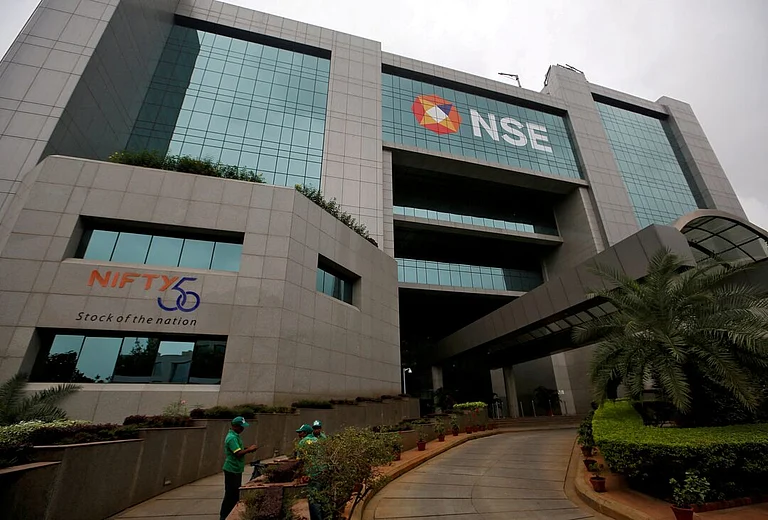By Bhuvanaa Shreeram
‘When you meet someone who is rich, happy, healthy, energetic and living with a sense of purpose, the question you are going to ask them is who is your financial planner’ - Bob Veres
A Tale of Two Approaches: Rahul vs. Arvind (both names changed)
Let’s rewind to 2015.
Rahul and Arvind, both 45 years old, were colleagues at a multinational firm, earning Rs 25-30 lakh per year. Their careers were on track, their kids were young, and retirement still felt far away.
Both had more or less similar responsibilities, such as kids in school, home loans, ageing parents needing more care, and lifestyle aspirations that included vacations, bigger homes, and the occasional indulgence in luxury.
But when it came to managing money, they took very different paths.
Rahul’s Approach: “I’ll figure it out.”
Rahul was well qualified, smart and was growing well in his career. He made reasonably good money and assumed he was doing fine. He read a lot about investments and invested in stocks, mutual funds and real estate. Usually a sizeable sum would also lay idle in his bank account, waiting for interesting investment opportunities to come by.
He did not see a reason to “overcomplicate” things. As long as he was earning well, he thought he could handle whatever life threw at him. All is well, I will figure it out as we go… was his mantra!
Arvind’s Approach: “Let’s have a plan.”
Arvind was doing very well too in his career. However having seen his parents go through financial difficulties to put him through college, he took a different approach to money. He worked with a financial planner to:
• Understand his non-negotiables—kids’ education, his parents’ medical expenses, and financial freedom at 55
• Build a structured portfolio that balanced growth, stability, and liquidity
• Create clear strategies for investments, insurance, and savings ensuring each rupee had a purpose
2016: Demonetisation
Then the real test came. When demonetisation was announced in 2016, markets dipped sharply.
• Rahul had money stuck in some real estate projects and quite a bit of cash-based transactions were going on. His liquidity was locked up, and he had to scramble to pay school fees and manage expenses.
• Arvind was largely unaffected. He usually held very little cash. He has some money stashed away in liquid assets for emergency. His long-term investments were in growth portfolios and the market dip did not bother him much. He stayed calm and stuck to his plan.
A small moment, but Rahul felt the first cracks in his financial confidence.
2018-2019: Bull Market Boom
Stock markets boomed post-demonetisation. New IPOs, rapid gains, and crazy returns in small-cap stocks.
• Rahul jumped in as the rally began picking up seeing his friends make some quick money. He invested aggressively, borrowed to apply for IPOs and picked stocks based on social media tips and suggestions from colleagues.
• Arvind stuck to his SIPs. His portfolio was already aligned with his risk profile. He rebalanced, booked profits when he was advised to and mostly stayed away from Fear Of Missing Out (FOMO) driven decisions. He actually was not bothered.
By 2019, Rahul felt like a genius. His portfolio was soaring, and he did not think he needed a financial plan anymore.
Then Came 2020.
2020: COVID Crash And The Ultimate Test
March 2020. Markets crashed by 30 per cent in weeks.
• Rahul was hit hard. His investments were scattered, and he had no clear strategy to manage the risks. Working from home added a bit of stress and job scene looked bleak. Seeing his portfolio crash, he was at loss how to respond.
He exited some investments and stuck to some. And when markets recovered he found new interests. This time, it was crypto and blockchain. Bitcoin was soaring, non-fungible tokens (NFTs) were the talk of the town, and it felt like a second chance at quick riches.
Meanwhile, his parents needed hospitalisation, and he realised his employer-provided health insurance was not enough. He had to dip into savings, adding another layer of stress.
• Arvind stuck to the plan. His insurance and emergency funds covered most expenses. He consolidated his holdings, did some year-end tax loss-harvesting and invested through the dips. He bought some good quality stocks too at lower prices.
Lesson? Most financial decisions happen during chaos — and they turn out badly when you don’t have a plan.
2021-2023: The Recovery And The Crypto Bust
Markets rebounded sharply after COVID.
• Rahul’s crypto adventure turned into a nightmare. While Bitcoin initially soared, by 2022, it collapsed by 75 per cent. NFTs and meme stocks he had poured money into were also down bad.
Meanwhile, his daughter got admission into a university in the US and he realised he had not planned well for the tuition fees. He took an education loan on top of his home loan.
• Arvind’s portfolio recovered, and by 2023, he had doubled his returns. His long-term discipline paid off. He had planned for his kids’ education years ago, so there was no last-minute scramble for funds.
By this time, Rahul realised he was in trouble. He had wasted years chasing short-term gains while Arvind’s structured approach had compounded wealth steadily.
Now It’s 2025. Who Is In Control?
Rahul is 55 now. His salary has grown. He now earns almost a crore a year, including bonuses. But his financial confidence is shaky.
• He is still working full-time, unsure if he has enough to retire.
• His investments are a mixed bag, with no clear cash flow strategy.
• He still does not know if his money will last.
• His parents need more hands-on care, he realises that he is not in a position to take time off to take care of them. He is looking for full time help at home which is going to add to his expenses.
Arvind, also 55, is in a different place.
• His retirement fund is on track.
• His kids’ education is fully funded without any loan.
• He has cut back his work hours to focus on passion projects.
• He feels confident and secure.
Same income. Same career. Different financial outcomes.
The difference? A plan that looked beyond short-term gains and market cycles.
The Next Decade Will Pass Anyway. Where Will You Be At The End Of It?
Fast forward to 2035.
• Will you have a financial structure that adapts to life’s uncertainties?
• Will you be in control, or will you keep reacting to situations?
• Will you have enough to retire with confidence or still be figuring it out?
Key Takeaways:
• A financial plan is not about timing the market. It is about riding every market cycle with confidence.
• Life will throw surprises. But a good financial plan ensures you do not just survive but thrive through them.
• The next 10 years will define your financial security in retirement. The best time to get serious? Now.
Final Thought
• The market moves in cycles. Your life moves in one direction.
• The question isn’t whether another crash, boom, or crisis will come. It is whether you will be ready when it does.
• Would you rather plan for it now or figure it out in hindsight?
The author is a certified financial planner and co-founder and head of financial planning, House of Alpha Investment Advisors Private Limited
(Disclaimer: Views expressed are the author’s own, and Outlook Money does not necessarily subscribe to them. Outlook Money shall not be responsible for any damage caused to any person/organisation directly or indirectly.)



















